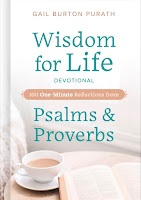If someone said: "Don't go to the store or you'll waste your time. First check the pantry, make a list, and then go to the store."
Would you summarize by saying "Don't go to the store"?
No. That would distort the true meaning.
Matthew 7:1-5 says we shouldn't judge others if we're using one standard for ourselves and another standard for others. It says we must first deal with our own sins and then we'll be able to tell others about their sins.
So why do so many people quote only the first sentence of the passage and insist that "we have no right to judge others"?
That distorts the true meaning of the passage.
That's why it's important to know what the Bible teaches, not what people think it teaches (2 Timothy 2:15).
-------------------
What Scripture Teaches: Who, What, and How to Judge Biblically.
Because this passage is frequently used to rebuke anyone who speaks against sin, I have created an archive of 1-minute devotions on the subject of appropriate Biblical judgement, all containing relevant Scriptures. You'll find that archive HERE.
----------------------
I also encourage you to check out the Wisdom for Life Devotional. It contains 100 one-minute devotions to challenge, encourage, instruct, and inspire your love for God's Word. Read the story behind Wisdom for Life HERE. And find out about the two free Bible studies with purchase HERE. You can read the first 4 devotions in the book by clicking "look inside" on Lifeway or Amazon. In addition, you can buy the book in Kindle format on Amazon and as an ebook on Barnes and Noble.
I also encourage you to sign up for a free subscription to Bible Love Notes and get a free e-booklet. Find out more HERE.





Very well put... Thank you for sharing this...
ReplyDeleteThank you for this. I will be looking at the archive's as well. I appreciate your ministry so much.
ReplyDeleteThank you!
ReplyDeleteBecause we are all sinners and fall short. That is why it is not mine to judge another’s sin.
ReplyDeleteHi Just me,
DeleteYou hold a very popular view, but it's not a Scriptural view. Here are just a few of the passages that contradict your view:
Matthew 7:15-20: “Watch out for false prophets. They come to you in sheep’s clothing, but inwardly they are ferocious wolves. 16 By their fruit you will recognize them. Do people pick grapes from thornbushes, or figs from thistles? 17 Likewise, every good tree bears good fruit, but a bad tree bears bad fruit. 18 A good tree cannot bear bad fruit, and a bad tree cannot bear good fruit. 19 Every tree that does not bear good fruit is cut down and thrown into the fire. 20 Thus, by their fruit you will recognize them."
Matthew 18:15: "If another believer sins against you, go privately and point out the offense. If the other person listens and confesses it, you have won that person back."
James 5:19-20: "My dear brothers and sisters, if someone among you wanders away from the truth and is brought back, 20 you can be sure that whoever brings the sinner back from wandering will save that person from death and bring about the forgiveness of many sins."
1 Corinthians 5:12: "It isn't my responsibility to judge outsiders, but it certainly is your responsibility to judge those inside the church who are sinning."
1 Corinthians 15:33: "Do not be misled: 'Bad company corrupts good character.'"
Ephesians 5: 5-7: "For of this you can be sure: No immoral, impure or greedy person—such a person is an idolater—has any inheritance in the kingdom of Christ and of God. 6 Let no one deceive you with empty words, for because of such things God’s wrath comes on those who are disobedient. 7 Therefore do not be partners with them."
It becomes very important, at this time, to define 'judgement'. Calling a sin what it is, sin, is not judgment. We must always be vigilant against sin, both in ourselves and those we associate with. Which is what many of the verses you reference are about. That is not what most people are talking about when they speak about not judging. It is perfectly fine to say that, as an example, stealing is a sin. (which we all know is true) However, there are those who become angry and accuse me of 'judging' them because they are indeed thieves. I did not judge them, they, through their actions (or reactions), have judged themselves. Too many people go from calling sin what it is, to condemnation, which is NOT our job.
DeleteSo, yes, call sin what it is. Stay away from it, lest you fall into its trap. Be kind and pray before you approach anyone about their sin. And be careful not to take scripture out of context to prove your point in any discussion. Be blessed.
IdaR nailed it. The author of this devotional is not properly identifying judgment as it is seen in modern culture. To discern that someone is sinning is very different than judging the "why" behind their actions. This is sadly often done in church, and it is never a human's place to judge another human's heart. That is God's job, because He is the only One who has the eyes to see to the heart.
DeleteHi Unknown,
DeleteIdaR didn't disagree with anything in the devotional. She agreed with the devotional saying that we should judge sin and sinners as long as we do it kindly and prayerfully.
And nothing in this devotional talks about judging the "why" behind a person's actions, nor does it talk about judging people's heart.
You are right that "this devotional is not properly identifying judgment as it is seen in modern culture." This devotion is identifying judgment as seen in Scripture. Culture and Scripture rarely agree.
But let me leave you with this thought: Do you think it's appropriate to judge a devotion for things it doesn't contain?